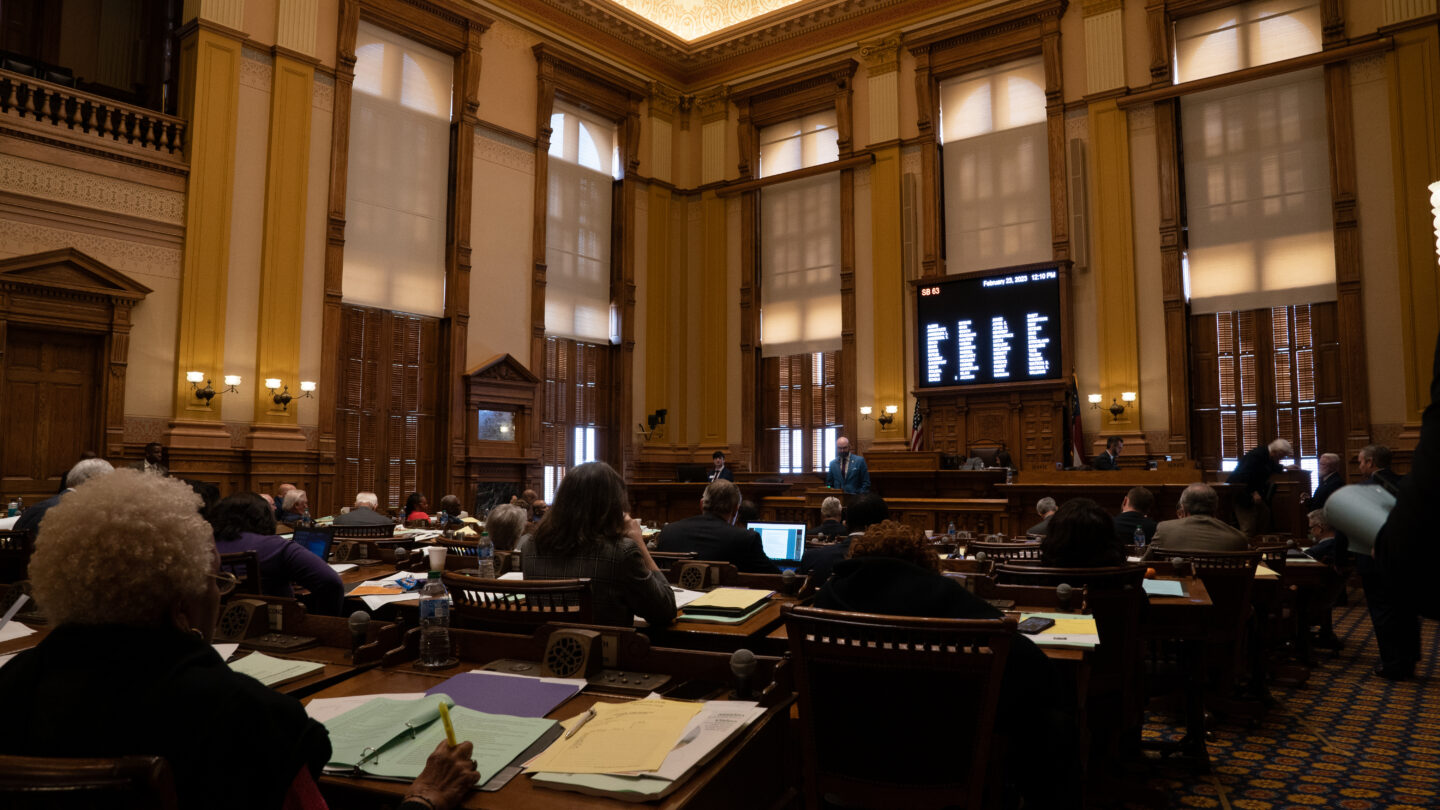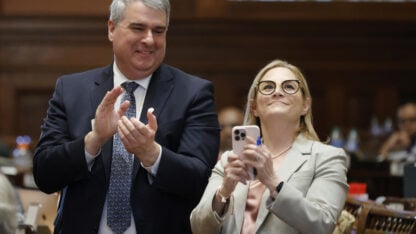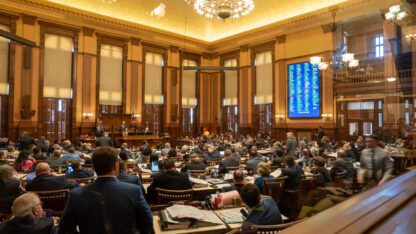A proposal to legalize online sports betting was revived by a Georgia Senate committee on Thursday, although its prospects of becoming law remain uncertain.
The Senate Economic Development and Tourism Committee amended House Bill 237 to include the legalization of online betting by early 2024 at the latest, and do so without asking voters to amend the state constitution.
The move to piggyback sports betting on an earlier bill comes late in the session, after legalization proposals in both the House and Senate failed to pass before the deadline to advance to the opposite chamber. The newly amended bill next goes to the Senate for its consideration. If senators approve it, the House would then have to agree to the plan.
Some Georgia lawmakers typically attempt to expand gambling every year, but none of the efforts have succeeded since voters approved a state lottery in 1992. Momentum had appeared to be building behind this year’s effort, after Republican Gov. Brian Kemp voiced openness to signing a bill. A total of 33 states and the District of Columbia now offer at least some form of sports wagering.
But earlier efforts to assemble a winning coalition have failed. The Senate this year voted down one plan that would have legalized betting on sports including horse races, and another plan that included a constitutional amendment. A House plan, which is backed by Atlanta’s pro sports teams and is most like the plan put forward Thursday in the Senate, never came to a vote before the full House.
The move to heavily amend House Bill 237, which originally designated the Southeast Soap Box Derby in Lyons as the state’s official soap box derby, took the bill’s sponsor by surprise. Rep. Leesa Hagan, a Lyons Republican, asked to have the derby removed from the measure, saying “I don’t want my soap box derby to be associated with sports betting.”
Rules allow Georgia lawmakers to completely change a bill. Such a “gut and replace” can bring discarded ideas back to life. Sen. Mike Dugan, a Carrollton Republican, said the move “just set sports betting back five years”
“When you hijack a soapbox derby and put sports betting on the back of it, every person that was on the fence in the state of Georgia has just now picked a side of the fence,” Dugan said. “So I can’t support this.”
But committee Chairman Brandon Beach, an Alpharetta Republican, said the plan was supported by Lt. Gov. Burt Jones, which a spokesperson for Jones confirmed. House Speaker Jon Burns said last week that the issue might not be dead for the year.
“We don’t close the door on anything,” Burns, a Newington Republican, said in an appearance before the Atlanta Press Club.
Sports betting would be administered by the Georgia Lottery Corp. under the plan. Tax revenues would flow to the lottery’s designated beneficiaries: college scholarships and state-funded preschool. The plan would license 16 sports books, each offering bets online to people 21 and older and physically present in the state.
It would reserve one license for the lottery, and give one to each of Atlanta’s major sports teams: the Braves, Hawks, Falcons, United and Dream. It would also give licenses to the Masters golf tournament, the Professional Golfers’ Association, and the owners of Atlanta Motor Speedway. Seven licenses would be reserved for betting firms such as DraftKings and FanDuel.
The bill would tax operators at 22%. Sen. Derek Mallow, a Savannah Democrat, said that was a compromise between earlier 25% House tax rate and 20% Senate tax rate proposals.
The bill would not authorize any physical locations for betting.
Supporters of letting the lottery run sports betting say the plan would not violate the Georgia Constitution’s ban on casinos or pari-mutuel betting. Former state Supreme Court Justice Harold Melton wrote an opinion for the Metro Atlanta Chamber of Commerce earlier this year backing the view. But opponents says voters didn’t understand sports gambling to be part of a lottery when they voted in 1992.









